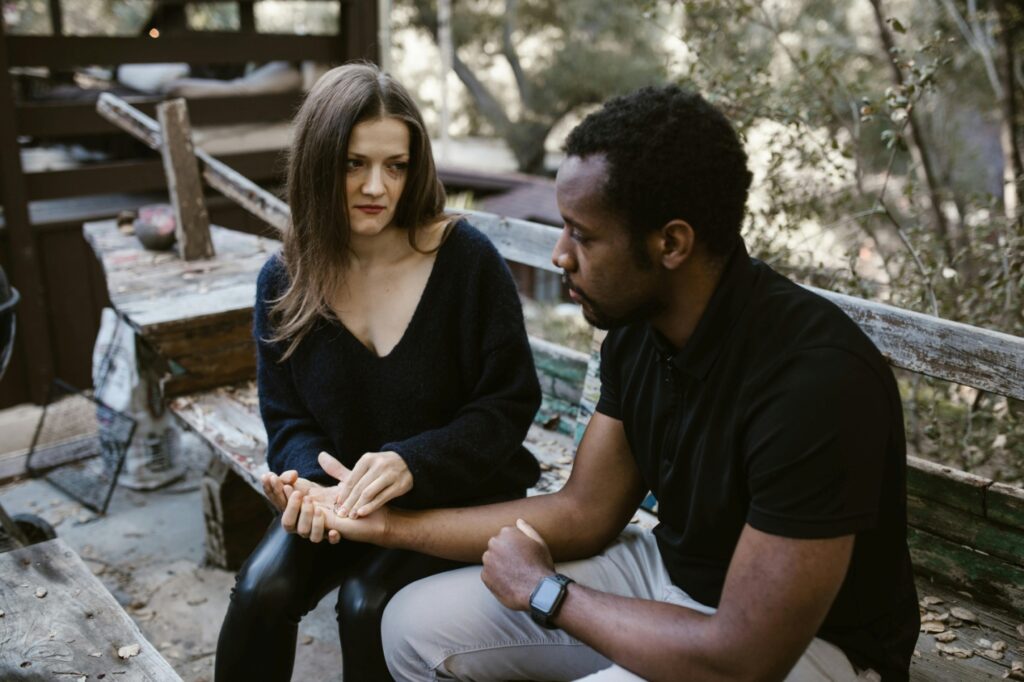Would it surprise you to know that a recording you make of your ex during a heated argument could actually backfire in court—even if it captures them saying something incriminating?
Many people assume that if they have a recording proving bad behavior, the court will automatically accept it as solid evidence. But when it comes to family law, especially in Texas, it’s not that simple. Recording a conversation—whether it’s about child custody, visitation, or support enforcement—can lead to legal trouble if you don’t understand how wiretap laws apply.
At Daniel Ogbeide Law, we’ve worked with parents and spouses who thought they were protecting themselves with a recording, only to find out later that it couldn’t be used—or worse, that it was illegal. As family law attorneys, we help clients understand what kind of evidence is admissible and how to build a case without violating state or federal law.
In this article, we’ll explain the legal limits of recording conversations in Texas, what’s allowed in family law cases, and how to protect your rights when considering audio evidence. We’ll also look at when such recordings help—or hurt—your custody or enforcement case.
Texas Wiretap Laws: One-Party Consent Rules
Texas is considered a “one-party consent” state when it comes to recording conversations. This means that as long as one party to the conversation consents to the recording, it’s legal under Texas law. If you are part of the conversation, you can record it without informing the other person.
However, problems arise when:
- You are not a participant in the conversation.
- You attempt to record someone remotely or secretly (like planting a phone or recorder in a child’s backpack).
- You cross into federal wiretap law territory, where certain multi-party calls or cross-state communications may be subject to stricter rules.
So, if you’re involved in a phone call or in-person conversation, you can usually record it legally. But if you record your ex-spouse talking to someone else without being present or without permission, you may be violating the law.
Can You Use Recordings in Family Law Cases?
Even if your recording is legal, the court decides whether it’s admissible in a family law proceeding. Texas family courts weigh several factors before admitting an audio file as evidence:
1. Relevance
- Is the recording directly related to the issue in the case?
- Does it help clarify disputes about custody, visitation, or parental behavior?
2. Authenticity
- Can it be proven that the recording is real and unedited?
- Can someone testify about when and how it was recorded?
3. Clarity
- Is the audio understandable?
- Are the voices and statements clearly identifiable?
4. Fairness
- Will admitting this evidence create unfair prejudice?
- Was it recorded under suspicious or unethical circumstances?
When Recordings Are Commonly Used in Custody Cases

In our experience as family lawyers, recordings have been used both to support and to weaken a parent’s case. A recording might be considered if:
- A parent is heard threatening or abusing the child.
- One parent admits to violating a custody agreement.
A child expresses fear or unwillingness to visit the other parent, and the conversation happens naturally during a phone call with the other parent present.
But recordings can also raise concerns if:
- The child was prompted or coached during the conversation.
- The recording was made without the knowledge of the parent or child, and the recorder was not part of the conversation.
- It appears that trust was manipulated to capture incriminating dialogue.
In other words, while a recording may seem helpful, it can quickly become a liability if obtained improperly or presented without context.
What About Video Recordings?
Similar rules apply to video recordings with audio. If the video includes sound, it is still subject to wiretap laws. Silent video footage—like a security camera without audio—can sometimes avoid these legal issues, but may not always show enough context to be meaningful in a court setting.
How to Use Recordings the Right Way
If you’re involved in a custody or enforcement dispute, here’s what we recommend before using or making any recordings:
- Talk to a family law attorney first.
A qualified lawyer can tell you whether your recording is legal, useful, and admissible in court. - Avoid recording children.
It can be traumatic, unethical, and may even violate court orders or co-parenting agreements. - Keep full, original versions.
Editing or trimming the recording—even for clarity—can make it inadmissible. - Document how the recording was made.
Be ready to explain the circumstances and who was involved. - Never record to provoke or entrap.
Courts frown on attempts to “bait” a parent into saying something incriminating.
What If the Other Parent Records You?
We’re often asked whether the other side can use a recording against you. The answer is yes—if it was legally obtained and meets the court’s evidentiary standards. That’s why it’s wise to assume that any interaction with your co-parent could be recorded, especially if you’re in a high-conflict case.
This also means:
- Be mindful of what you say, especially during exchanges of custody or calls.
- Keep communication respectful and documented in writing when possible.
- Avoid emotionally charged confrontations that could be used against you later.
Is It Worth the Risk?
If you’re wondering whether recording a conversation will help your case, ask yourself:
Would this be better handled through proper legal channels instead?
Often, there are safer and more effective ways to document concerns—such as sworn affidavits, text messages, third-party witnesses, or professional reports. Courts tend to value evidence that is reliable, clear, and obtained lawfully over secretly made recordings that raise ethical red flags.

When in Doubt, Ask the Professionals
Recording someone without understanding the law could harm your family law case far more than it helps. That’s why it’s important to speak with a legal professional before making any decision that could affect your custody rights or the outcome of your case.
At Daniel Ogbeide Law, we represent clients with compassion and clarity. Our team of family law and litigation lawyers in Houston understands what evidence the courts expect—and what mistakes can cost you. Whether you’re dealing with a complex custody battle, child support enforcement, or a modification dispute, we can help you make informed, strategic decisions that protect your rights and your family’s well-being.
If you’re facing a difficult dispute, contact one of the family law attorneys in Houston trusted by hundreds of clients across Texas. Our firm is known for putting families first and providing practical, aggressive representation when it matters most.
Book a confidential consultation with Daniel Ogbeide Law today. Let one of the most experienced family law and litigation attorneys in Houston help you move forward with confidence.

